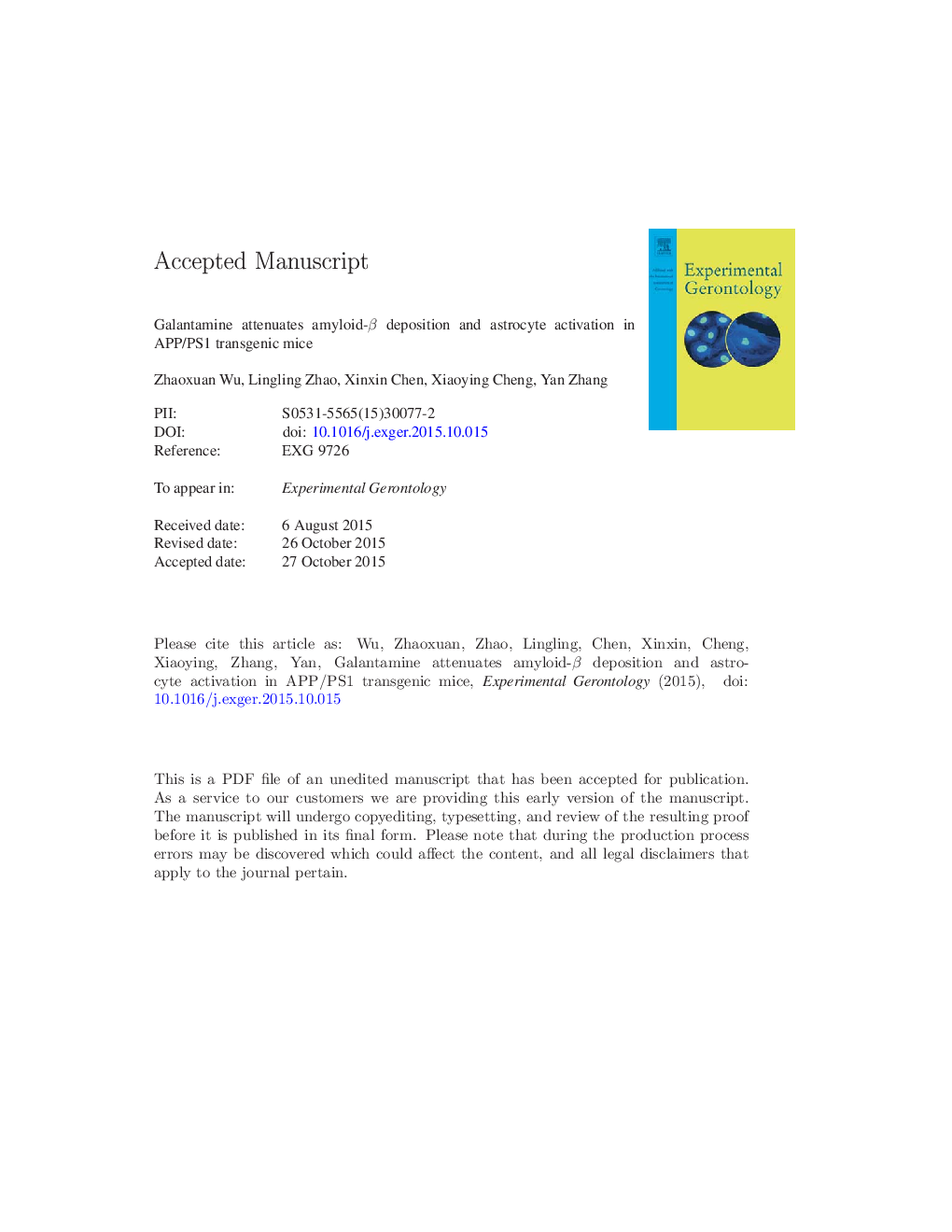| Article ID | Journal | Published Year | Pages | File Type |
|---|---|---|---|---|
| 8263077 | Experimental Gerontology | 2015 | 31 Pages |
Abstract
While galantamine may not provide a cure for Alzheimer's disease (AD), it decelerates the progression and provides symptomatic relief for this disorder. The aim of this study was to investigate the effect of chronic galantamine treatment on cognitive performance, Aβ deposition and astrocyte activation in the transgenic APP/PS1 mouse model of AD. Galantamine (5 mg/kg, i.p.) or 0.9% saline was administrated twice daily for eight weeks in 10-month-old APP/PS1 mice. In addition a separate group of 10-month old male C57BL/6 wild type mice was included as a reference control. Compared with saline treated APP/PS1 mice, galantamine treated mice exhibited significantly improved escape latencies on Days 6 and 7 of testing (p < 0.05) and significantly decreased numbers of platform crossings (p < 0.01) as assessed in the Morris water maze. Galantamine reduced the total area of amyloid load within the hippocampus of transgenic APP/PS1 mice, inhibited astrocyte activation as assessed by immunohistochemistry and decreased intracellular TNF-α and IL-6 expression as determined by immunofluorescence. Galantamine failed to alter hippocampal levels of TNF-α and IL-6 as assayed by ELISA. Galantamine may be involved in modifying AD pathophysiological mechanisms by alleviating Aβ deposition and neuroinflammation. The results from this study provide new evidence for use of galantamine in the treatment of AD.
Related Topics
Life Sciences
Biochemistry, Genetics and Molecular Biology
Ageing
Authors
Zhaoxuan Wu, Lingling Zhao, Xinxin Chen, Xiaoying Cheng, Yan Zhang,
